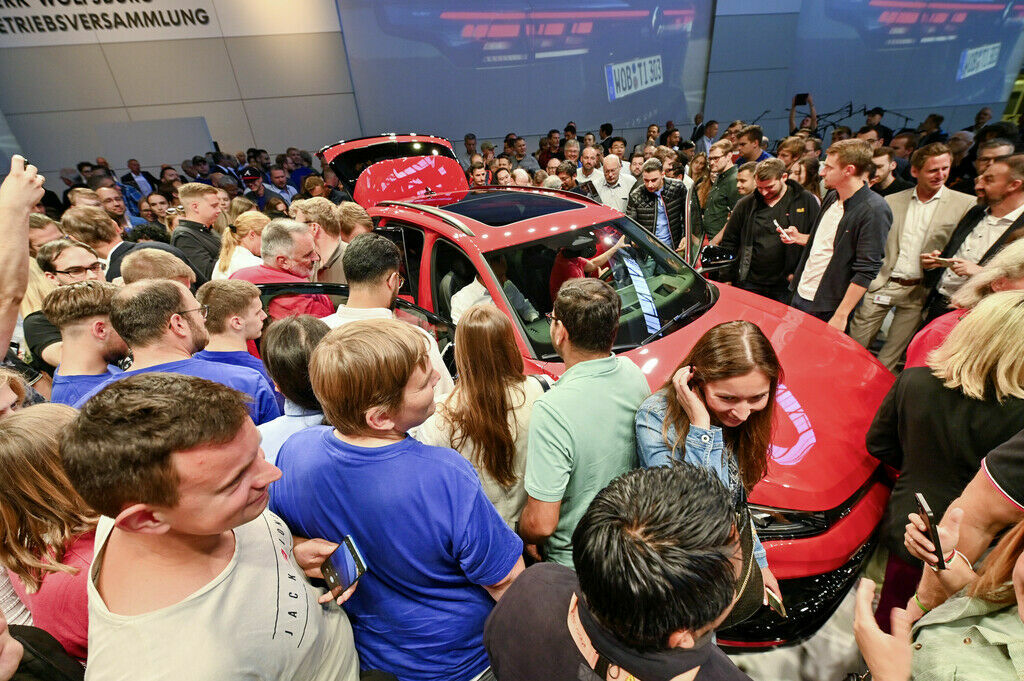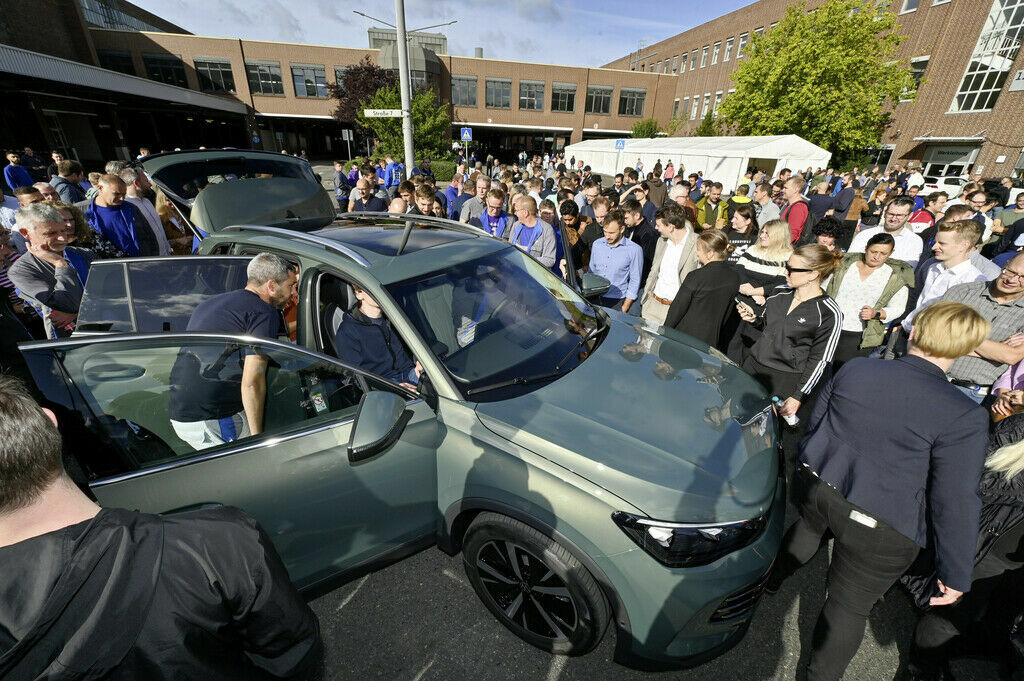Thomas Schäfer, CEO of Volkswagen Passenger Cars: “Showcasing our new Tiguan to the VW team ahead of its world premiere was a top priority for us. It is our way of saying thank you to our employees for their hard work and passion. The compact SUV is a very important model for the company and the Wolfsburg location, an absolute bestseller across the whole world. A total of 7.6 million customers have purchased our compact SUV since its debut in 2007.
Daniela Cavallo, Chairwoman of the General and Group Works Council, underlined: “The idea of holding the world premiere for and with the workforce came from the Works Council. Holding the world premiere of the new Tiguan in the course of the works meeting sends a strong signal of our appreciation for our colleagues, especially here at the Tiguan’s birthplace in Wolfsburg. They contributed to its success and have been the best brand ambassadors from the get-go. This is how we say thank you to our workforce for their sterling work.”The employees followed the world premiere in and around Hall 11 and in the live stream.
Volkswagen Board Member for Sales Imelda Labbé, said: “The Tiguan is one of our best-selling models in the compact SUV segment in many markets. Here in Germany, among other countries, it is the number one in this vehicle class, making it one of the most important pillars for the success of the Volkswagen brand.”
Volkswagen provides one of the most state-of-the-art and largest SUV programs with the new Tiguan, T-Roc, T-Cross, Taigo and Touareg, the all-electric ID.4 and ID.5 and a host of other models in North and South America, India and China. SUVs are the fastest-growing market segment worldwide, which is why having a strong portfolio is particularly important for giving Volkswagen a competitive edge.
HIGHLIGHTS OF THE NEW TIGUAN
The third generation of the compact SUV presents itself with a completely new design. Particularly striking are the powerful looking front end and the new, distinctive rear section. The interior of the Tiguan has also been redesigned. It is characterized by a high quality of materials and workmanship and impresses with a new operating concept. A clearly designed digital cockpit landscape, for example, provides maximum information and brings digital services and apps on board. The operation is designed to be consistently self-explanatory. The modules include the new “Digital Cockpit” (anti-reflective digital instruments in tablet landscape format), an infotainment screen up to 38 centimeters (15 inches) in size with a completely new menu structure and graphics, a likewise new head-up display2 (projections onto the windshield) and a new, multifunctional driving experience switch with integrated OLED display. This new dial with its own mini-screen can be used to control the driving mode, radio volume or even the colors of the ambient lighting.
The Tiguan is based on the latest evolutionary stage of the Modular Transverse Toolkit: the MQB evo. The new technology developments realized with this kit improve the Tiguan in almost every area. New hybrid powertrains with a purely electric range of around 100 km make the SUV more efficient than ever before. In addition, AC charging will be faster in all eHybrid versions, and DC fast charging will also be possible as a standard feature for the first time. In addition, new systems such as a pneumatic massage function for the front seats and the “IQ.LIGHT – HD matrix headlights” used for the first time in the Tiguan were derived from the luxury Touareg model. The new adaptive chassis “DCC Pro” perfects comfort and dynamics. The latest generation of “Park Assist” automates parking and backing out.
Please find further information on the Tiguan here







